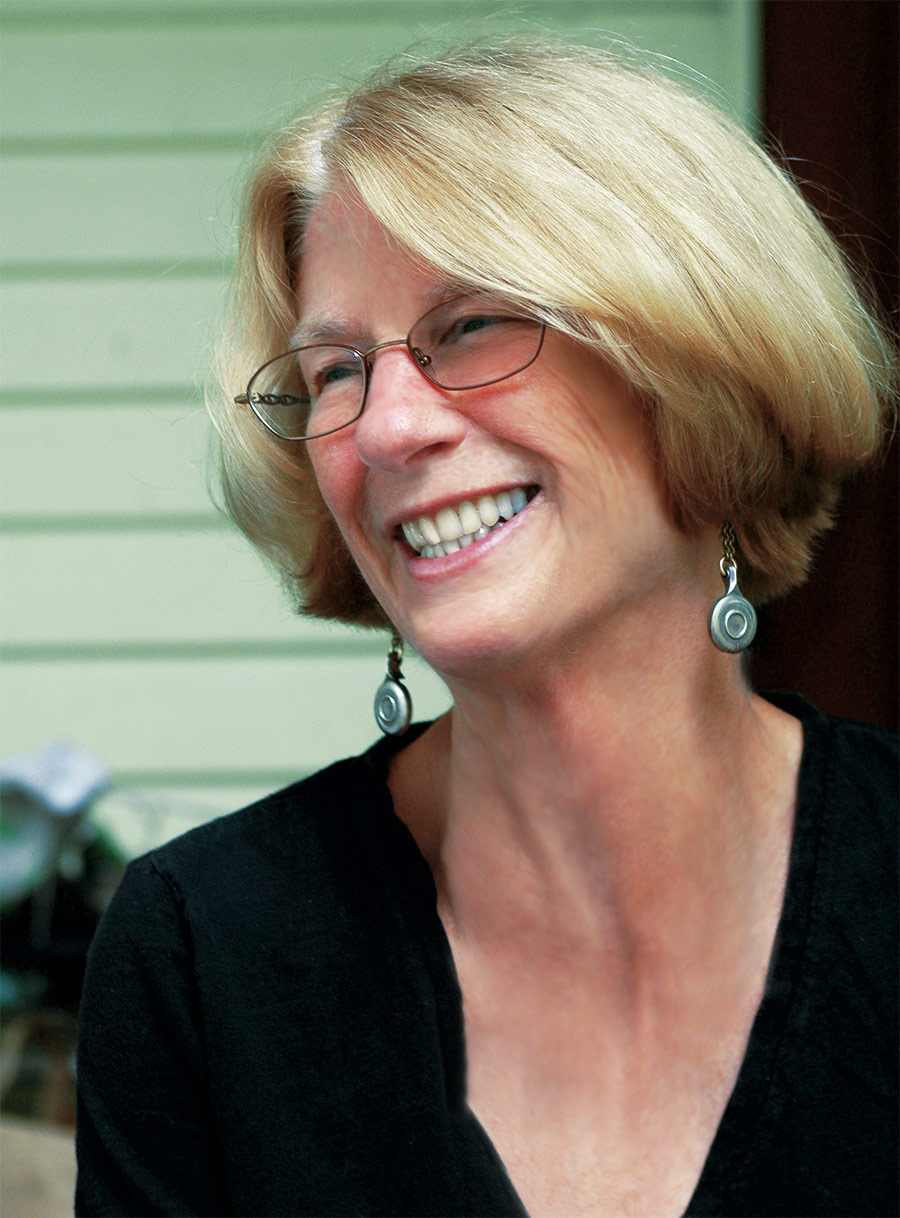But it was at Bucknell — reading the electrifying works of William Butler Yeats and Allen Ginsberg in poetry courses — where the English major discovered the form that would spark her wordplay.
“With poetry, there’s a point where the language itself takes over, where you just let go of yourself and follow where it wants to go,” says Sholl, who’s published nine poetry collections. “The movement, the lyrical associations, the wildness of it — I love those moments of discovery and surprise where it feels like the poem is leading you.”
Sholl’s poetic subjects are as eclectic as they are personal, ranging from her love of jazz and observations about social class to her father’s early death and her subsequent life in a 1950s all-female household. The latter served as inspiration for Changing Faces, her first collection published by Alice James Books, a press Sholl co-founded in 1973 to uplift the voices of female poets.

When Sholl was tapped as Maine’s poet laureate from 2006 to 2011, an even greater opportunity to shepherd diverse, exciting writers emerged.
Says Sholl, “It was amazing to see how alive the literary world is in my local towns and see writers grow into their power as they believe that their voices matter.”